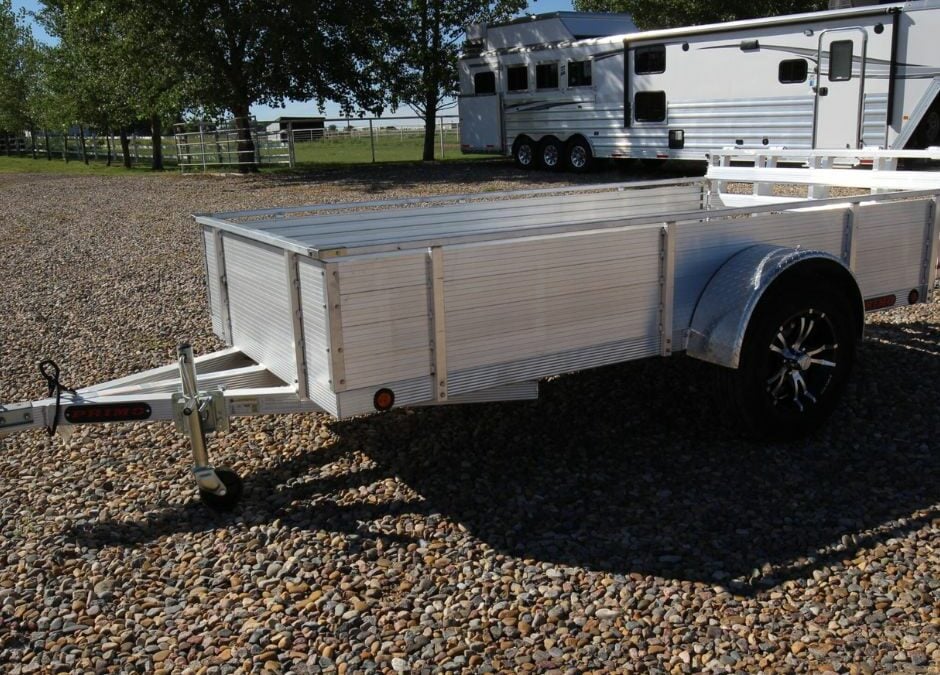The evolution of utility trailers stands as a testament to the constant innovation and adaptability required to meet the ever-changing demands of diverse industries. Beginning as humble, utilitarian units, these trailers have undergone a remarkable transformation over time. Originally serving as basic platforms for transporting goods, they have evolved into specialized designs to accommodate an array of cargo types. As industries expanded and transportation needs grew more complex, utility trailers experienced significant improvements, integrating technological advancements, durable materials, and enhanced safety features. This journey through innovation has not only shaped the utility trailer landscape but has also paved the way for more efficient and versatile options to meet the evolving challenges of modern hauling
The evolution of utility trailers has been a dynamic journey marked by constant innovation and adaptation to meet the ever-changing demands of various industries. From humble beginnings as simple, utilitarian units, utility trailers have transformed significantly over time. Historically, they served as basic platforms for transporting goods, evolving into more specialized designs to accommodate diverse cargo types. As industries expanded and transportation needs became more complex, the utility trailer underwent substantial improvements, incorporating technological advancements, durable materials, and enhanced safety features.
Traditional utility trailers, while serving essential hauling functions, have grappled with inherent challenges that limit their effectiveness. Issues such as limited capacity and maneuverability have posed obstacles for users. However, the landscape of utility trailers is rapidly transforming with cutting-edge technological advancements. The latest innovations address these challenges by introducing smart tracking systems, advanced braking mechanisms, and other features that significantly enhance utility trailers’ capabilities. This convergence of traditional challenges and modern solutions underscores the ongoing evolution within the utility trailer industry, promising more efficient and adaptable options for meeting diverse hauling needs.
The evolution of utility trailers extends beyond functionality to encompass improved durability and environmentally conscious materials. Recent advancements in construction materials have resulted in trailers that boast enhanced durability and longevity, addressing concerns related to wear and tear. Concurrently, the utility trailer industry is making strides in embracing environmental considerations. With a focus on eco-friendly features such as fuel efficiency and the incorporation of recyclable materials, the latest utility trailers align with sustainable practices, reflecting a commitment to both durability and environmental responsibility. This dual emphasis on robust construction and eco-conscious design marks a pivotal shift in the utility trailer landscape, catering to the evolving needs of users while promoting environmental sustainability.
In conclusion, the multifaceted evolution of utility trailers reflects a continuous commitment to improvement and adaptation within the industry. The convergence of traditional challenges and cutting-edge technological solutions highlights the ongoing transformation that promises more efficient and adaptable options for meeting diverse hauling needs. Furthermore, the evolution extends beyond mere functionality, incorporating enhanced durability and environmentally conscious materials. Recent strides in construction materials have resulted in trailers with superior durability and longevity, effectively addressing wear and tear concerns. Simultaneously, the industry’s embrace of environmental considerations, including fuel efficiency and recyclable materials, signifies a commitment to sustainable practices. This dual emphasis on robust construction and eco-conscious design signifies a pivotal shift in the utility trailer landscape, catering to the ever-evolving needs of users while promoting environmental responsibility in the process.

